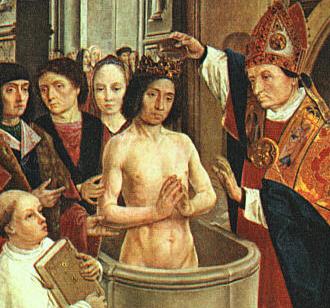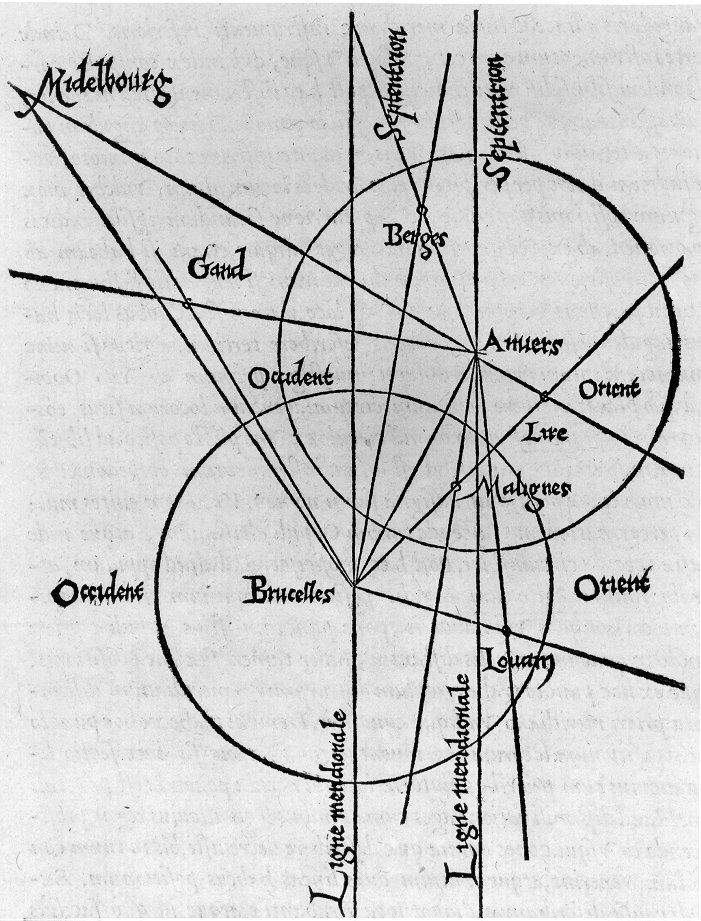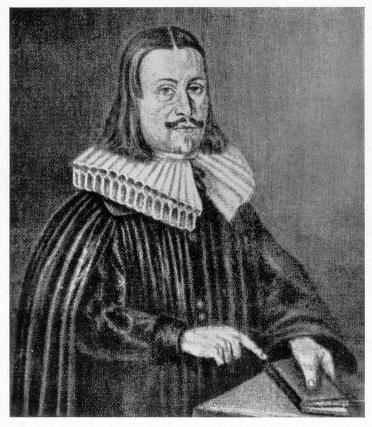|
1555 In Science
The year 1555 CE in science and technology included a number of events, some of which are listed here. Biology * Pierre Belon publishes '' L'Histoire de la nature des oyseaux'', a pioneering work in the comparative anatomy of birds. Exploration * Richard Eden publishes ''The Decades of the Newe Worlde or West India'', a translation into English of parts of Pietro Martire d'Anghiera's '' De orbe novo decades'', the Gonzalo Fernández de Oviedo y Valdés work ''Natural hystoria de las Indias'' and others. * Guillaume Le Testu's ''Cosmographie Universelle selon les navigateurs, tant anciens que modernes'' contains maps of Terra Australis. Mathematics * Petrus Ramus publishes ''Arithmétique''. * First German translation of Euclid's elements by Johann Scheubel. Births * June 13 – Giovanni Antonio Magini, Italian astronomer (died 1617) * Andreas Libavius, German physician (died 1616) Deaths * January 14 – Jacques Dubois, French anatomist (born 1478) * May 25 – Gemma Fris ... [...More Info...] [...Related Items...] OR: [Wikipedia] [Google] [Baidu] |
Giovanni Antonio Magini
Giovanni Antonio Magini (in Latin, Maginus) (13 June 1555 – 11 February 1617) was an Italian astronomer, astrologer, cartographer, and mathematician. His Life He was born in Padua, and completed studies in philosophy in Bologna in 1579. His father was Pasquale Magini, a citizen of Padua. Dedicating himself to astronomy, in 1582 he wrote '' Ephemerides coelestium motuum'', translated into Italian the following year. In 1588 he was chosen over Galileo Galilei to occupy the chair of mathematics at the University of Bologna after the death of Egnatio Danti. He died in Bologna on 11 February 1617. His work Magini supported a geocentric system of the world, in preference to Copernicus's heliocentric system. Magini devised his own planetary theory, in preference to other existing ones. The Maginian System consisted of eleven rotating spheres, which he described in his ''Novæ cœlestium orbium theoricæ congruentes cum observationibus N. Copernici'' (Venice, 1589). In his ''De ... [...More Info...] [...Related Items...] OR: [Wikipedia] [Google] [Baidu] |
Mathematician
A mathematician is someone who uses an extensive knowledge of mathematics in their work, typically to solve mathematical problems. Mathematicians are concerned with numbers, data, quantity, mathematical structure, structure, space, Mathematical model, models, and mathematics#Calculus and analysis, change. History One of the earliest known mathematicians was Thales of Miletus (); he has been hailed as the first true mathematician and the first known individual to whom a mathematical discovery has been attributed. He is credited with the first use of deductive reasoning applied to geometry, by deriving four corollaries to Thales's theorem. The number of known mathematicians grew when Pythagoras of Samos () established the Pythagorean school, whose doctrine it was that mathematics ruled the universe and whose motto was "All is number". It was the Pythagoreans who coined the term "mathematics", and with whom the study of mathematics for its own sake begins. The first woman math ... [...More Info...] [...Related Items...] OR: [Wikipedia] [Google] [Baidu] |
Dutch People
The Dutch, or Netherlanders (Dutch language, Dutch: ) are an ethnic group native to the Netherlands. They share a common ancestry and culture and speak the Dutch language. Dutch people and their descendants are found in migrant communities worldwide, notably in Argentina, Aruba, Australia, Brazil, Canada,Based on Statistics Canada, Canada 2001 Census]Linkto Canadian statistics. Caribbean Netherlands, Curaçao, Germany, Guyana, Indonesia, New Zealand, Sint Maarten, South Africa, Suriname, and the United States.According tFactfinder.census.gov The Low Countries were situated around the border of France and the Holy Roman Empire, forming a part of their respective peripheries and the various territories of which they consisted had become virtually autonomous by the 13th century. Under the Habsburgs, the Netherlands were organised into a single administrative unit, and in the 16th and 17th centuries the Northern Netherlands gained independence from Spain as the Dutch Republic. The ... [...More Info...] [...Related Items...] OR: [Wikipedia] [Google] [Baidu] |
Gemma Frisius
Gemma Frisius (; born Jemme Reinerszoon; December 9, 1508 – May 25, 1555) was a Dutch physician, mathematician, cartographer, philosopher, and instrument maker. He created important globes, improved the mathematical instruments of his day and applied mathematics in new ways to surveying and navigation. Gemma's rings, an astronomical instrument, are named after him. Along with Gerardus Mercator and Abraham Ortelius, Frisius is often considered one of the founders of the Netherlandish school of cartography, and significantly helped lay the foundations for the school's golden age (approximately 1570s–1670s). Biography Frisius was born in Dokkum, Friesland (present-day Netherlands), of poor parents who died when he was young. He moved to Groningen and later studied at the University of Leuven (Louvain), Belgium, beginning in 1525. He received the degree of MD in 1536 and remained on the faculty of medicine of Leuven for the rest of his life where, in addition to teaching ... [...More Info...] [...Related Items...] OR: [Wikipedia] [Google] [Baidu] |
Anatomist
Anatomy () is the branch of morphology concerned with the study of the internal structure of organisms and their parts. Anatomy is a branch of natural science that deals with the structural organization of living things. It is an old science, having its beginnings in prehistoric times. Anatomy is inherently tied to developmental biology, embryology, comparative anatomy, evolutionary biology, and phylogeny, as these are the processes by which anatomy is generated, both over immediate and long-term timescales. Anatomy and physiology, which study the structure and function of organisms and their parts respectively, make a natural pair of related disciplines, and are often studied together. Human anatomy is one of the essential basic sciences that are applied in medicine, and is often studied alongside physiology. Anatomy is a complex and dynamic field that is constantly evolving as discoveries are made. In recent years, there has been a significant increase in the use of ... [...More Info...] [...Related Items...] OR: [Wikipedia] [Google] [Baidu] |
French People
French people () are a nation primarily located in Western Europe that share a common Culture of France, French culture, History of France, history, and French language, language, identified with the country of France. The French people, especially the native speakers of langues d'oïl from northern and central France, are primarily descended from Roman people, Romans (or Gallo-Romans, western European Celts, Celtic and Italic peoples), Gauls (including the Belgae), as well as Germanic peoples such as the Franks, the Visigoths, the Suebi and the Burgundians who settled in Gaul from east of the Rhine after the fall of the Roman Empire, as well as various later waves of lower-level irregular migration that have continued to the present day. The Norsemen also settled in Normandy in the 10th century and contributed significantly to the ancestry of the Normans. Furthermore, regional ethnic minorities also exist within France that have distinct lineages, languages and cultures such ... [...More Info...] [...Related Items...] OR: [Wikipedia] [Google] [Baidu] |
Jacques Dubois
Jacques Dubois ( Latinised as Jacobus Sylvius; 1478 – 14 January 1555) was a French anatomist. Dubois was the first to describe venous valves, although their function was later discovered by William Harvey. He was the brother of Franciscus Sylvius Ambianus (François Dubois; c. 1483 – 1536), professor of humanities at the Collège de Tournai, Paris. First years The origins of this anatomist are vague. He was probably born in 1478 in Loeuilly, See als''In linguam Gallicam Isagωge'' a small town near Amiens, the seventh in a family of fifteen.Kellett, C. E. (1961), "Sylvius and the Reform of Anatomy", ''Med Hist.'' 5(2): 101–116. His father had been a weaver. At a young age he studied Ancient Greek with Hermonymus of Sparta''Revue des bibliothèques'', Volume 15, 1905p. 268 and Janus Lascaris, Hebrew with François Vatable, and mathematics with Jacques Lefèvre d'Étaples, and gradually became a leading figure in French humanism, where he was famous for his excelle ... [...More Info...] [...Related Items...] OR: [Wikipedia] [Google] [Baidu] |
1616 In Science
The year 1616 in science and technology involved some significant events. Astronomy * Galileo challenges the Catholic Church, saying Copernicus' heliocentric theory of the Solar System is correct. On February 24 he is forbidden to speak of Copernicus's theories. Tommaso Campanella writes ''The Defense of Galileo''. * March 5 – Copernicus' ''De revolutionibus orbium coelestium'' (1543) is forbidden by the Congregation of the Index for reading "until corrected" (this is done in 1620: nine sentences, in which the heliocentric system is represented as certain, have to be either omitted or changed). Biology * William Harvey presents his views on the circulation of blood as Lumleian Lecturer at the College of Physicians, but will not publish them for a further dozen years. * Fortunio Liceti publishes ' which marks the beginning of studies into malformations of the embryo. * Fabio Colonna publishes ' in Rome, including two appendices, ' and ', where he argues that "tongue stones ... [...More Info...] [...Related Items...] OR: [Wikipedia] [Google] [Baidu] |
Physician
A physician, medical practitioner (British English), medical doctor, or simply doctor is a health professional who practices medicine, which is concerned with promoting, maintaining or restoring health through the Medical education, study, Medical diagnosis, diagnosis, prognosis and therapy, treatment of disease, injury, and other physical and mental impairments. Physicians may focus their practice on certain disease categories, types of patients, and methods of treatment—known as Specialty (medicine), specialities—or they may assume responsibility for the provision of continuing and comprehensive medical care to individuals, families, and communities—known as general practitioner, general practice. Medical practice properly requires both a detailed knowledge of the Discipline (academia), academic disciplines, such as anatomy and physiology, pathophysiology, underlying diseases, and their treatment, which is the science of medicine, and a decent Competence (human resources ... [...More Info...] [...Related Items...] OR: [Wikipedia] [Google] [Baidu] |
German People
Germans (, ) are the natives or inhabitants of Germany, or sometimes more broadly any people who are of German descent or native speakers of the German language. The Basic Law for the Federal Republic of Germany, constitution of Germany, implemented in 1949 following the end of World War II, defines a German as a German nationality law, German citizen. During the 19th and much of the 20th century, discussions on German identity were dominated by concepts of a common language, culture, descent, and history.. "German identity developed through a long historical process that led, in the late 19th and early 20th centuries, to the definition of the German nation as both a community of descent (Volksgemeinschaft) and shared culture and experience. Today, the German language is the primary though not exclusive criterion of German identity." Today, the German language is widely seen as the primary, though not exclusive, criterion of German identity. Estimates on the total number of Germ ... [...More Info...] [...Related Items...] OR: [Wikipedia] [Google] [Baidu] |
Andreas Libavius
Andreas Libavius or Andrew Libavius was born in Halle, Germany and died in July 1616. Libavius was a renaissance man who spent time as a professor at the University of Jena teaching history and poetry. After which he became a physician at the Gymnasium in Rothenburg and later founded the Gymnasium at Coburg. Libavius was most known for practicing alchemy and writing a book called ''Alchemia'', one of the first chemistry textbooks ever written. Life Libavius was born in Halle, Germany, as Andreas Libau, the son of Johann Libau. His father, only a linen worker, could not give Libavius an education because in this time period only the wealthy were able to get a higher education. Showing great intelligence as a child Livavius overcame his personal status and attended the University of Wittenberg at the age of eighteen in 1578. In 1579 he entered the University of Jena where he studied philosophy, history and medicine. In 1581 he obtained the academic degree of '' magister arti ... [...More Info...] [...Related Items...] OR: [Wikipedia] [Google] [Baidu] |






